A Small, Good Thing
20 May 2022
After co-teaching a practical course on musical theatre for the first time in January-March 2022, Tom Parkinson and I were sufficiently enthused by our collaboration and - most importantly - by the extraordinary skills that the course exposed and harnessed in our students - to decide to write a musical together and put it on with the students.
And we’ve just done it. The show was written in about a month, incredibly, and staged from scratch in a week, even more incredibly.
It’s my first attempt to write a musical. I’ve written songs before. I’ve rewritten a musical. I’ve written stand-up for musical cabaret. But this is the first time I’ve written a complete set of lyrics for a musical.
Because we were working with students and it was educational, we were not public and it had only one performance. The musical was based on the short story by Raymond Carver ‘A Small, Good Thing’, one of my very favourite stories. It concerns a suburban American couple whose young son is knocked down on his birthday. After a few days, lying unconscious in a hospital bed, he dies. Meanwhile, the parents have been receiving odd, hostile phone calls from an unknown source. Only after the boy’s death does the mother realise that the caller is the baker whom she asked to bake Scotty’s birthday cake and who is disgruntled that she’s not come to pick it up. In her rage and grief she drives to confront the baker; he is hostile initially. but when he realises what happened to the boy is wholly and sincerely contrite, confessing to his failures and regrets. He produces some coffee and some cinnamon rolls, direct from the oven. He asks them to sit. And here the story does something magically unexpected; the parents and the baker start to talk and they talk and sharing bread becomes a small, good thing that allows the mother to see that possibly, just possibly she could survive the most unimaginable loss in a person’s life.
We amplified that into a 70-minute story, making more of the couple’s life before the accident, the aspirations of the child, truncated the action in the hospital (which is all just stasis) to one day, transformed a parallel couple of the hospital who don’t add much dramatically, and significantly transformed Carver’s flat, dry, affectless prose into something more, well, musical theatre. Because of our demographic, we made the baker a woman, the lead doctor a woman, and the son into a girl. I should say, we were only able to do all of this because it was an educational and not a public event (though I am tempted to see if the adaptation rights are available).
In our first proper meeting about the show we felt out where we thought the song moments were. It felt clear that the mother’s journey would be plotted in three songs: one fearing for her girl; another experiencing grief; and a third that registers the effect of the small, good thing. We wanted to establish generally the worlds of parents and children, so we decided to start with parents talking about their kids and then kids talking about their future. We thought the battle between faith and science might be worked through in two songs, one where the hospital staff hymn the marvels of medicine and another where a superstitious person talks about prayer and hope and luck. In the event we decided against the second, which felt too coarse and overextended the hospital scene. We thought the Baker upselling a kid’s birthday cake through a patter song would be a fun song to do and then a moment of confrontation between parents and baker could be fierily musical. Lastly, we thought the terrible moment of the child dying could itself be done as a surreal song.
We worked quickly. I did the treatment and accidentally did a rather clever thing: the treatment was a detailed plot description, divided into three acts. Where the songs were, I was initially going to just write ‘Hospital song’, ‘Grief song’ etc., but as I did it, I thought it might be more evocative to create song titles, so I just made up titles for the songs we’d discussed. Some of these changed, but some of them didn’t. The reason why it was clever is that it made the songs feel like they already existed and I just had to find them. Rather than think purely about the function, there was already a kind of song idea there, implied by its title. The Baker upselling song was (and remained) ‘It’s Gonna Cost a Little More’; the parents talking about their kids (“You’ve Got To Love Them’); the Baker/parent confrontation was ‘Prove It!’ and so on.
The way we worked is that I wrote lyrics first and sent them to Tom who set them, sometimes asking for changes or making his own adjustments that I would then finesse. He would sometimes make specific requests about metre; I would sometimes make suggestions about adjusting the melody. In a couple of cases we both went back to the drawing board. Initially, I will say, I had assumed he’d write music and I’d put lyrics to it and was quite daunted by writing lyrics seemingly out of nowhere, though actually it was the best decision. It’s very freeing to be able to structure the song from scratch, choose the rhyme scheme, create whatever sections seem necessary to the song. Tom is quite brilliant in finding genuinely compelling, memorable, singable popular music settings for these lyrics and most of the songs feel to me seamless. A couple of times, early on, I wrote lyrics using an existing melody just to give me a structure to work from. I didn’t tell Tom what those songs were and he found his own melodies that feel so right I can’t any longer imagine those lyrics to the ‘original’ tune.
I had no reason to think I could write lyrics. It was perfectly possible that I would fall flat on my face, though I had two safety nets (a) Tom and (b) it wasn’t ‘public’ as such. In the event, I’m proud of the lyrics I produced. We certainly created two songs that made people actually, actually cry. We certainly had three songs that successfully got laughs. (I managed to get the words ‘Labradoodle’ and ‘Electrocardiography’ into songs, fitting perfectly into the metre.)
Most of all, I’ve come away from it with a heightened sense of how extraordinary songs are. A tune without lyrics is fine, but it’s just a tune. Lyrics without music are maybe poetry. Together they are extraordinary. Music brings deep visceral emotion, tension, drama, and more; lyrics make everything sharper, more specific, add edges, give a more precise sense of character and situation. Music is typically circular, because the journeys it takes tend to resolve by returning to where you started (the root note, the first chord, etc.); lyrics are more linear and take you on a journey somewhere else and the tension between those is fascinating in the musical.
We had a decent-sized cast (13) and a band of five. Everyone was brilliant, worked extraordinarily hard all week: they danced, they sang, they acted and rightly got an overwhelmingly positive response from the audience.
I feel a bit giddy with it. Slightly addicted.
FYI this is the song list:
You’ve Got To Love Them
When I Grow Up
It’s Gonna Cost a Little More
Accidents Happen
When I Grow Up (reprise)
This Isn’t Happening
A Thousand Stories
This isn’t Happening (reprise)
Cry My Ocean
Slow Feet
Prove It
A Small Good Thing
Dawn
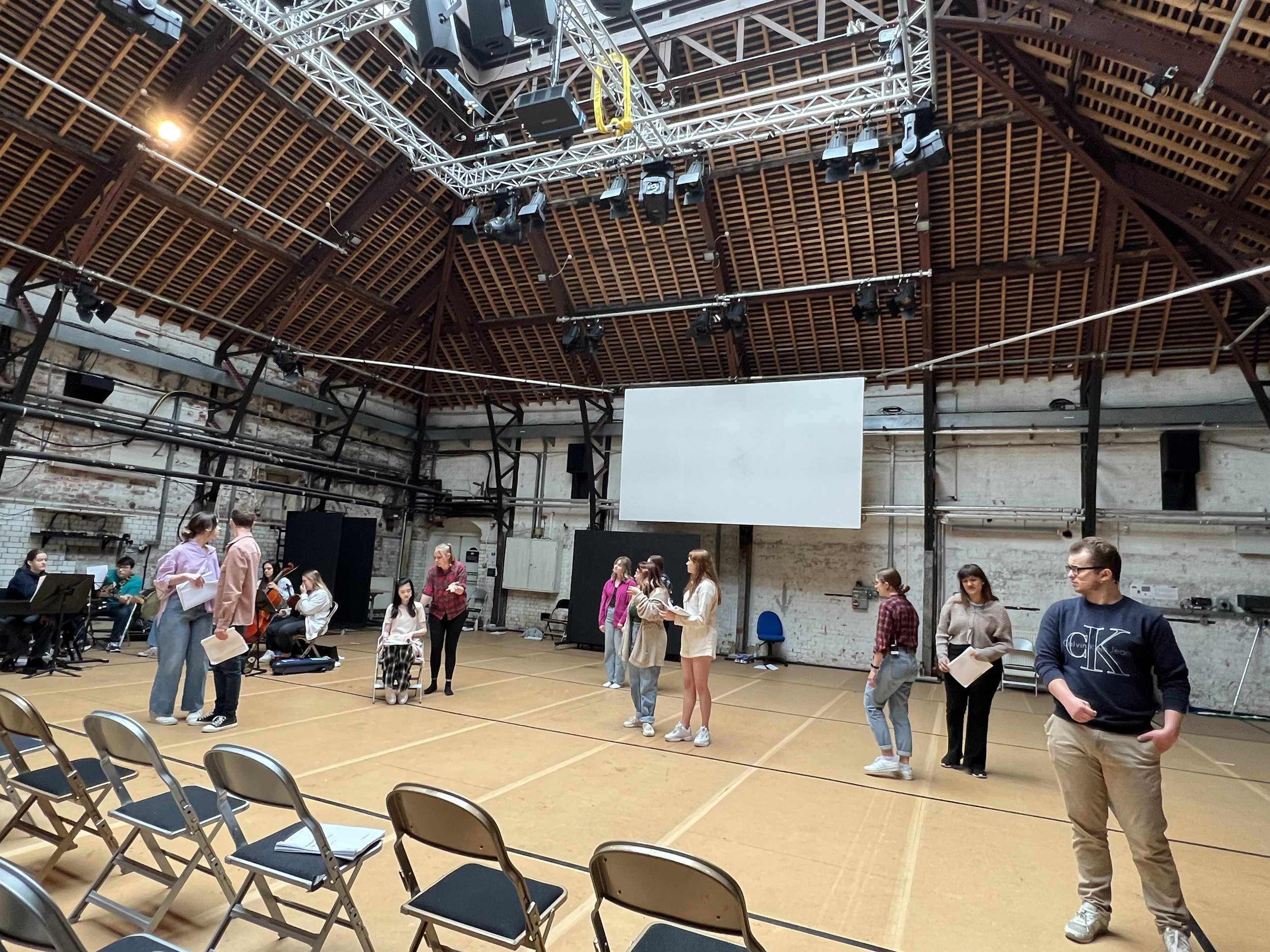
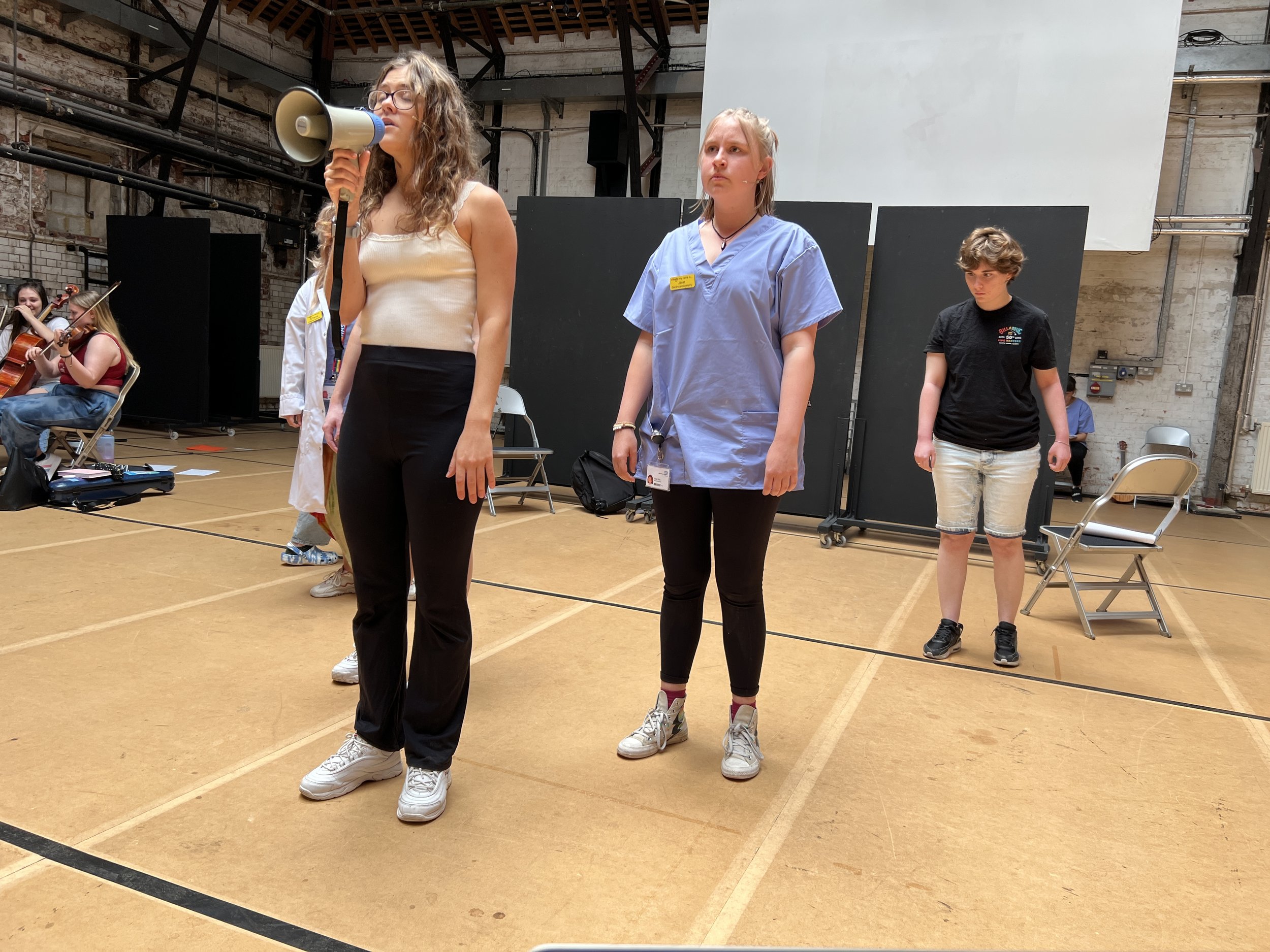
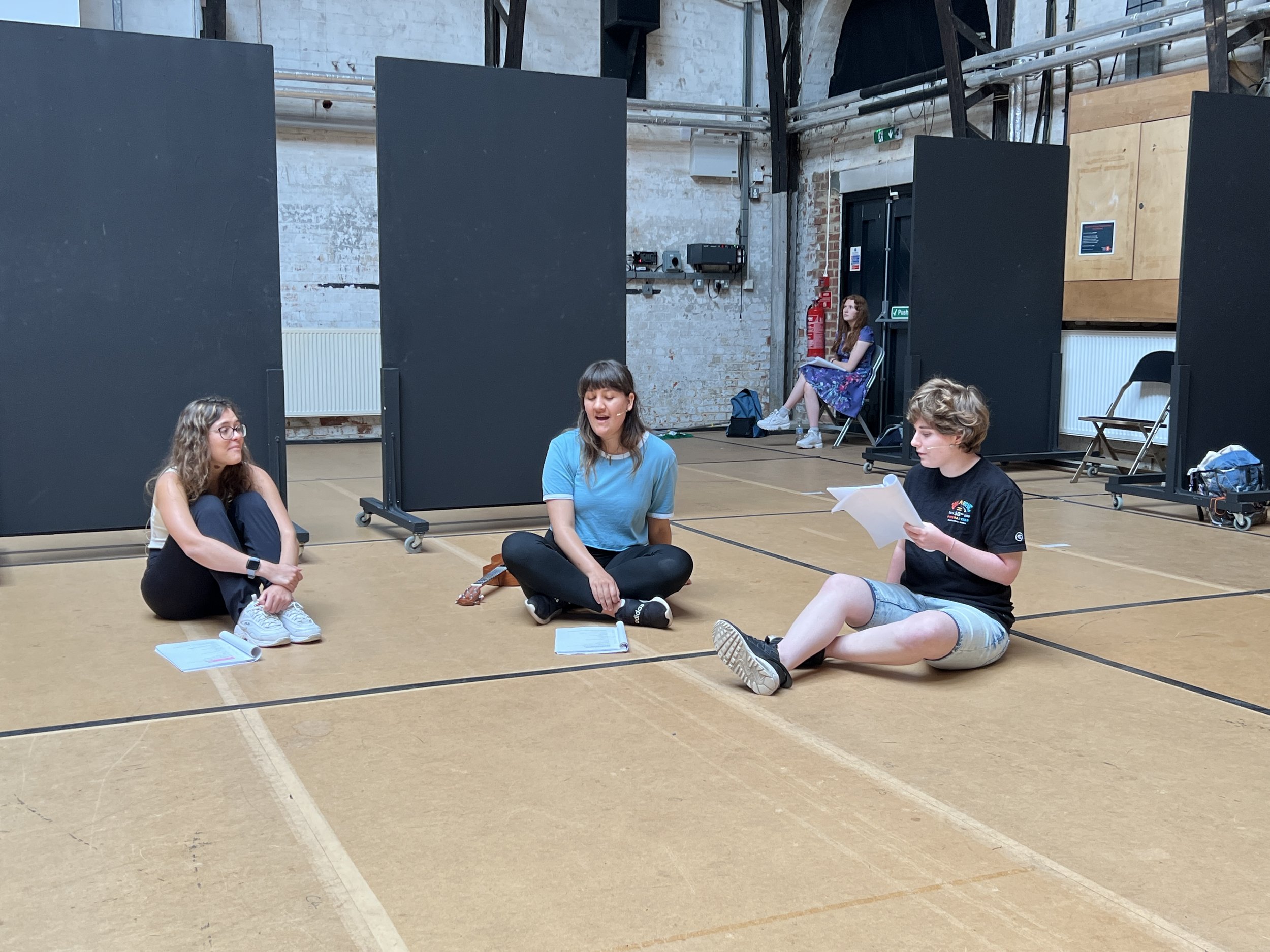
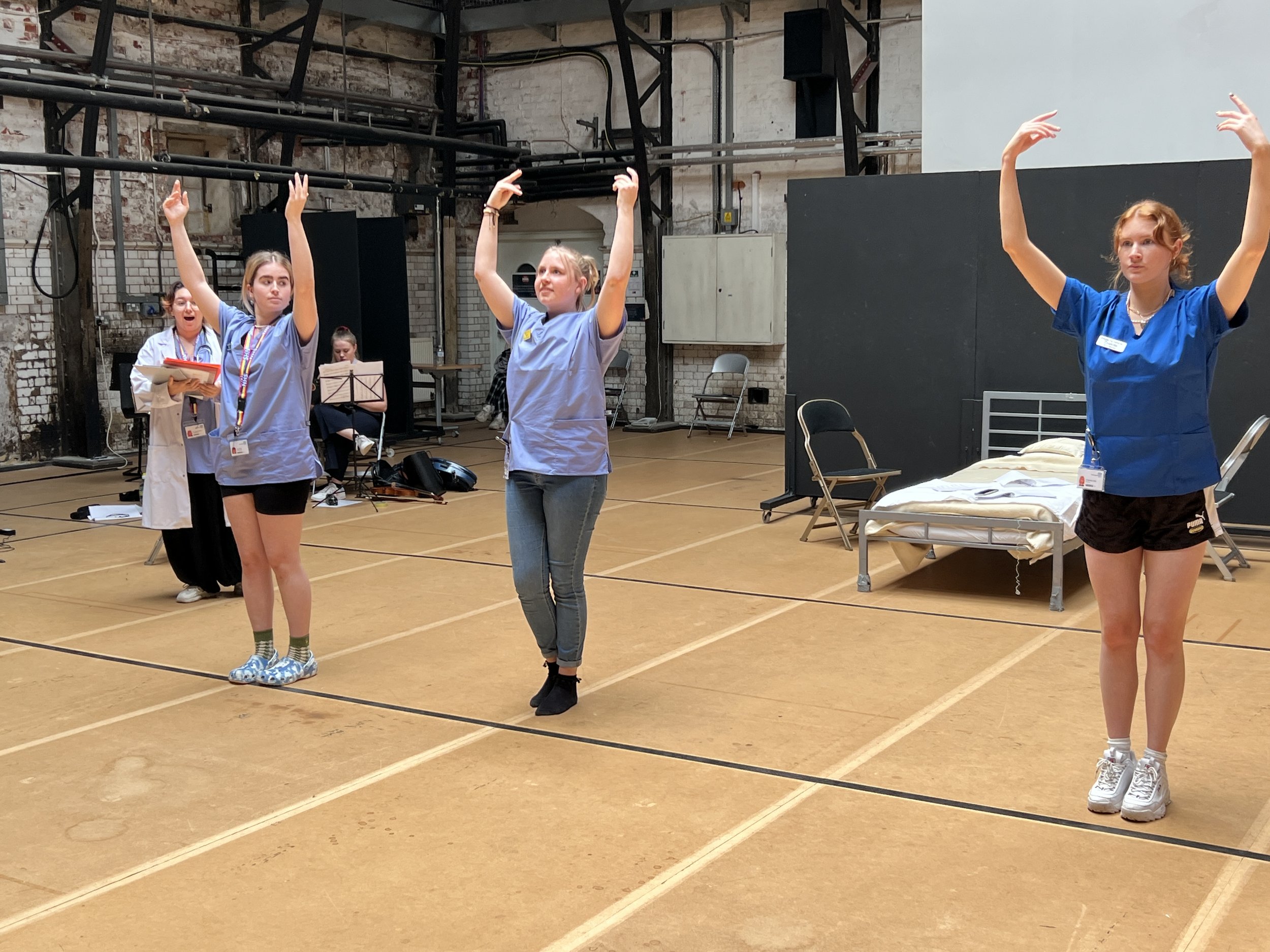
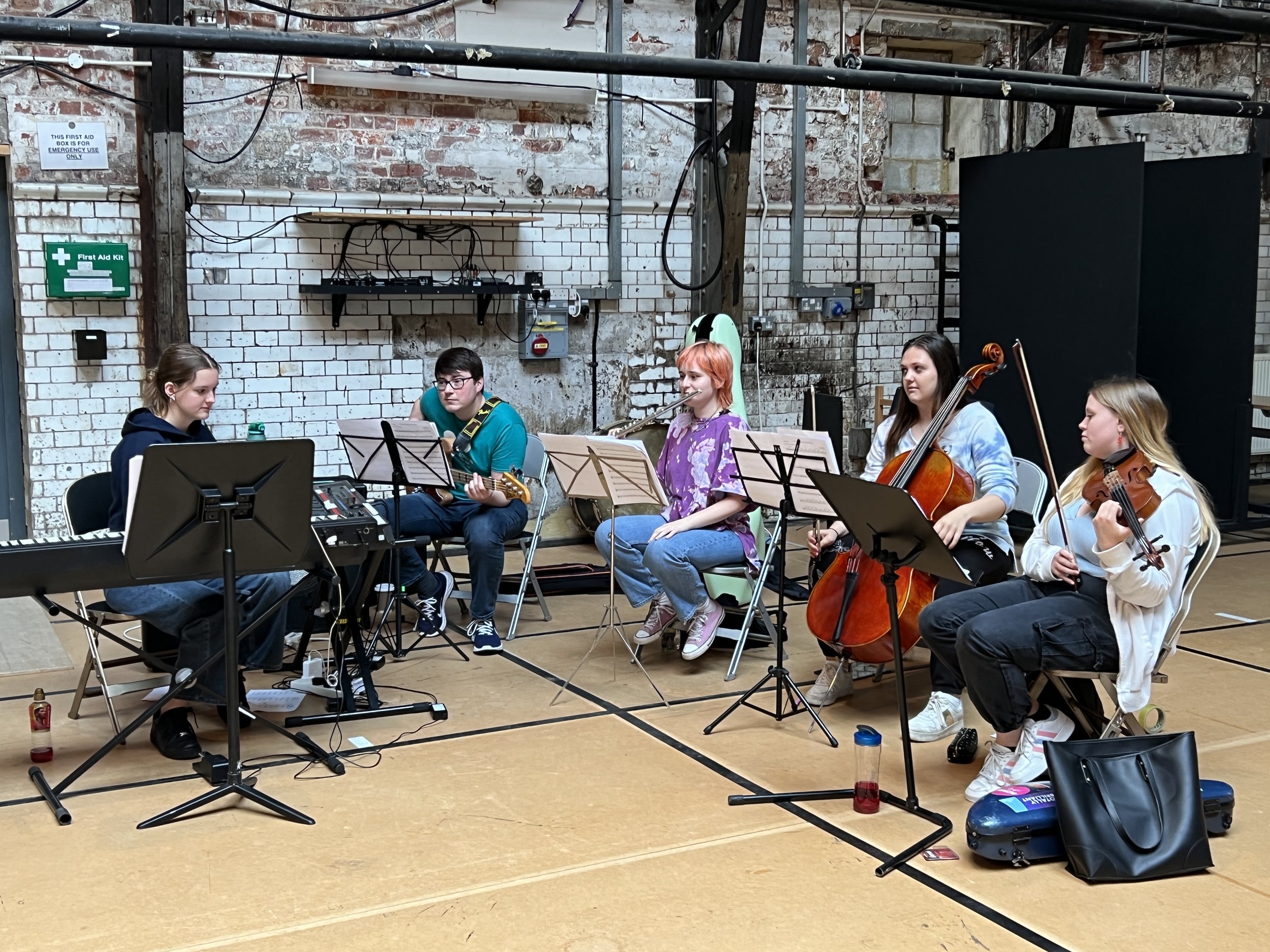
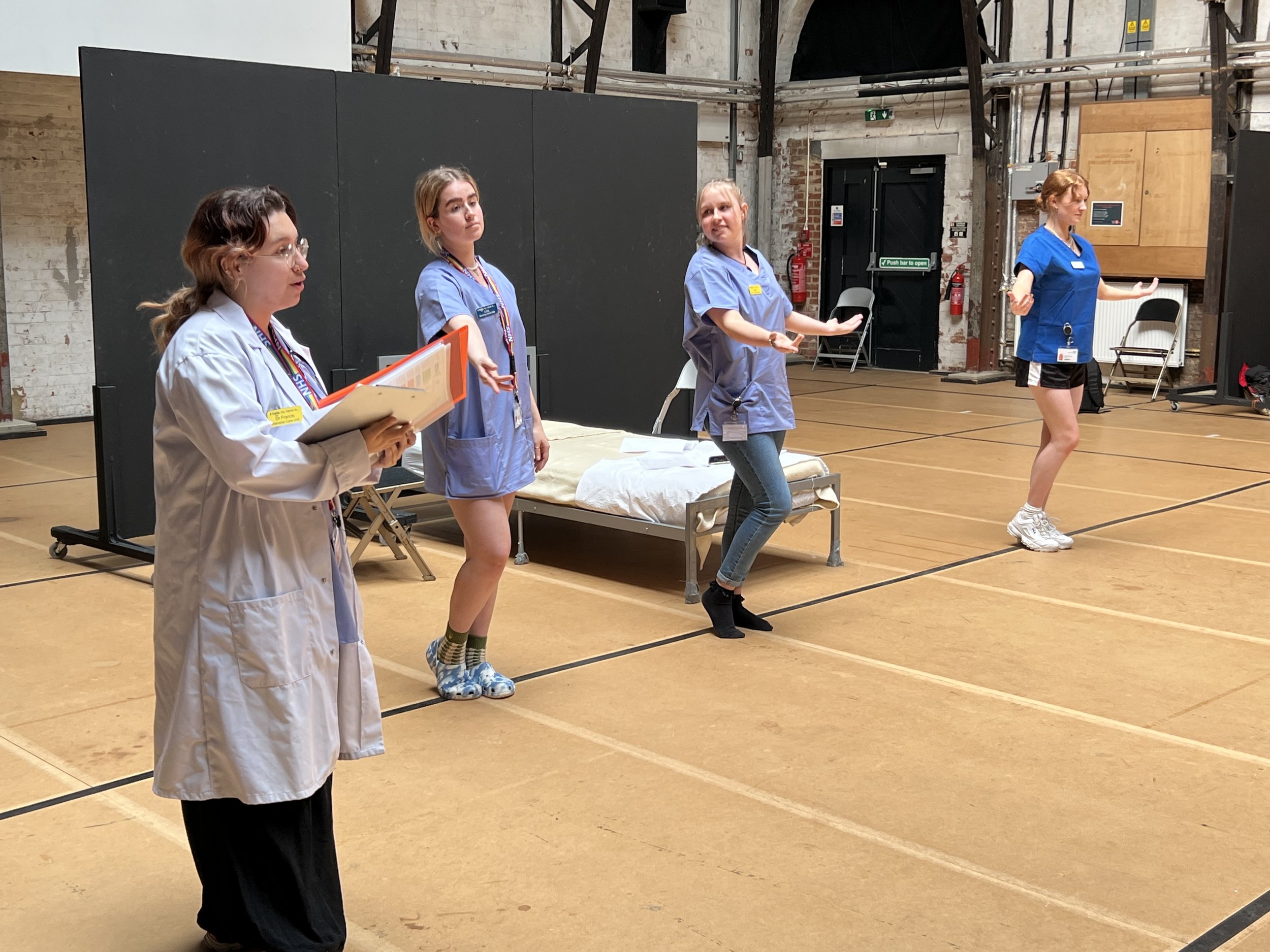
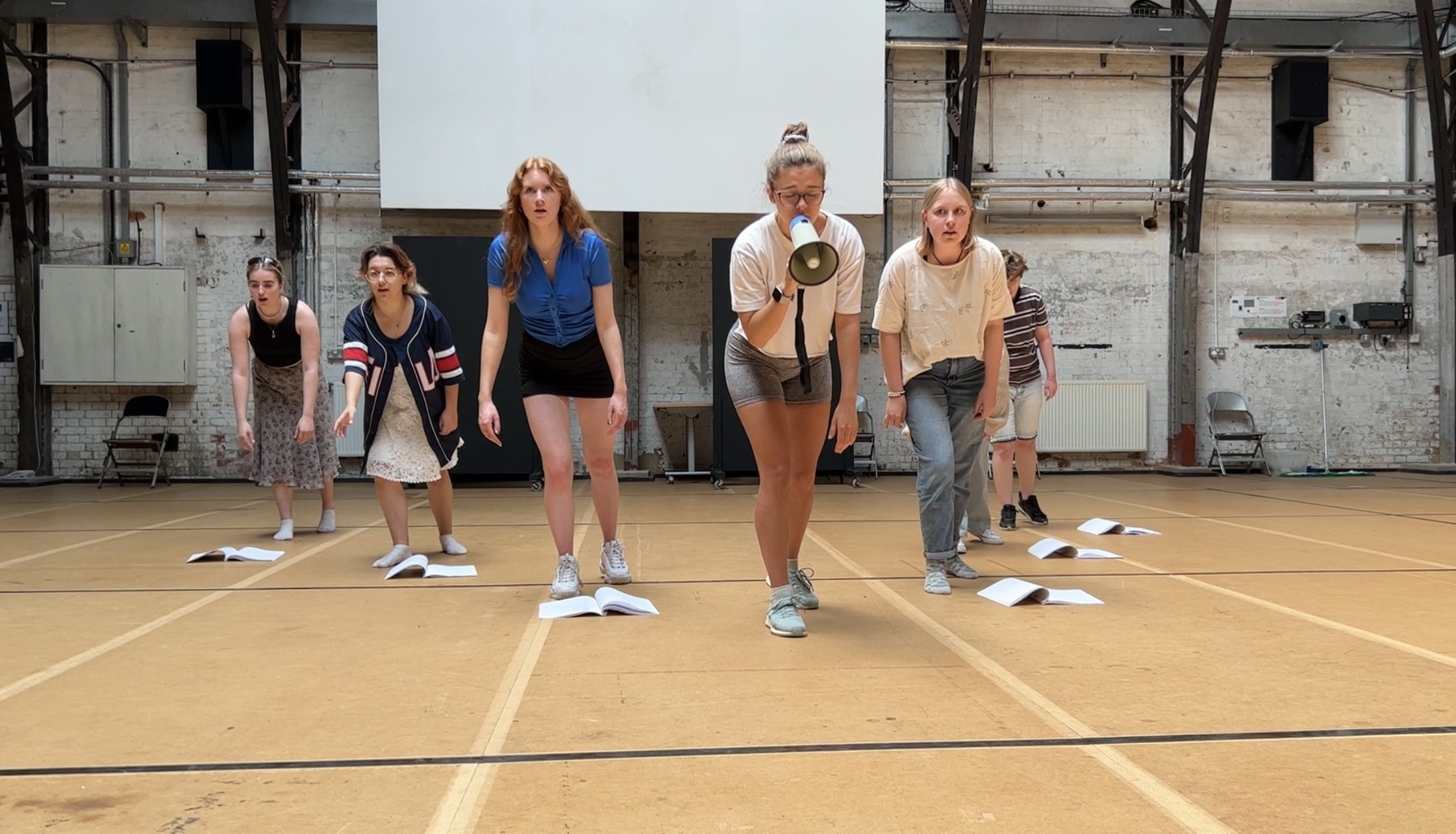


![photo[1].jpg](https://images.squarespace-cdn.com/content/v1/513c543ce4b0abff73bc0a82/1362919072201-PZO854G4SEB794DVOEI8/photo%5B1%5D.jpg)
